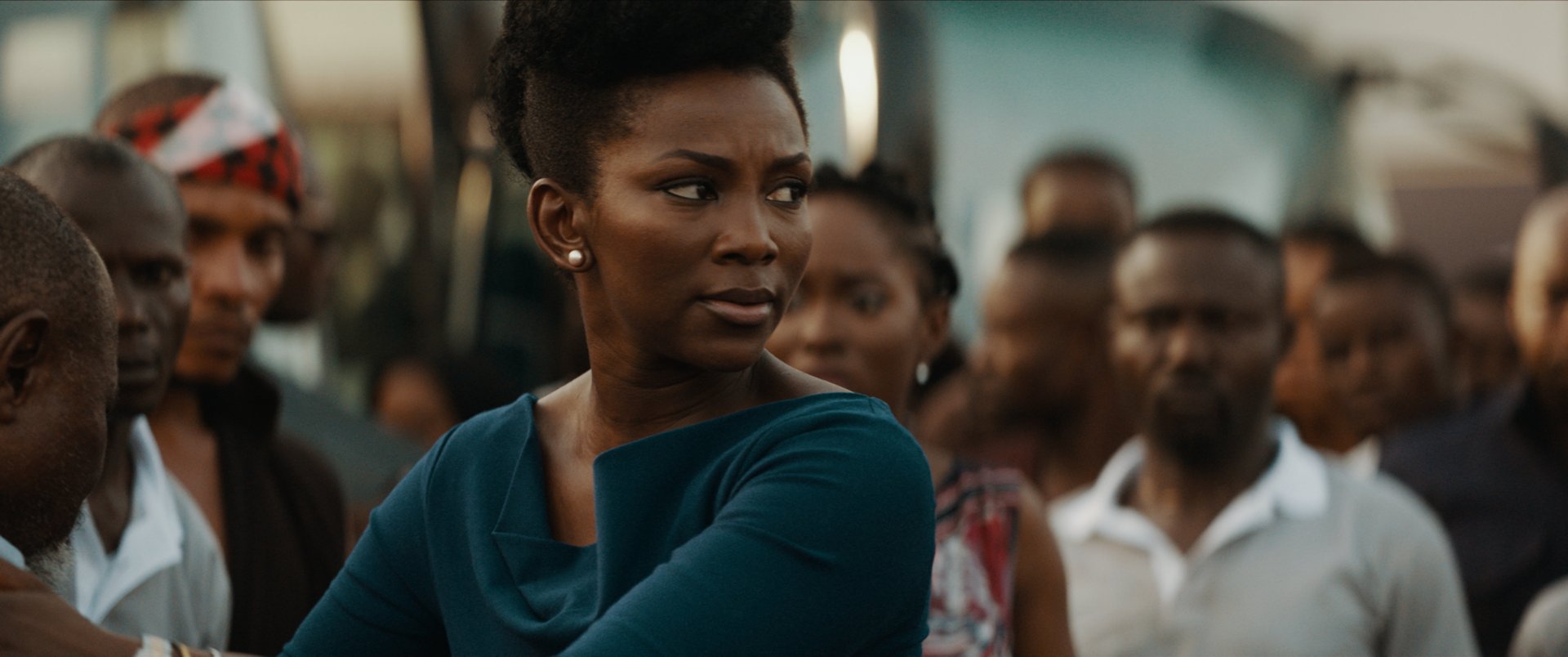Netflix’s first Nollywood original film has been disqualified from Oscars consideration for its English dialogue
Nigeria’s Nollywood movie industry will be waiting a while longer for its first Academy Award nomination.


Nigeria’s Nollywood movie industry will be waiting a while longer for its first Academy Award nomination.
Lionheart, the country’s first ever film submitted for consideration in the International Feature Film category, has been disqualified by the Academy for falling short of the non-English dialogue quota, per the category’s requirements.
The film, starring and directed by Genevieve Nnaji, one of Nollywood’s biggest stars, is predominantly in English with only about 12 minutes of the film’s 95-minute run time in Igbo, one of Nigeria’s main local languages. Lionheart is also Netflix’s first original film from Nollywood and while it was available via the streaming platform, it also had a run in local cinemas which met the Academy’s requirement that submitted films must have been exhibited for a minimum of seven consecutive days in a movie theater.
The movie’s disqualification has stirred a debate about how the rule impacts movie industries in countries where English is the official language with 2017 Academy Award nominee Ava Duvernay among leading critics of the decision to disqualify Lionheart. For her part, Nnaji has defended the dominance of English in her movie saying the language “acts as a bridge” between the over 500 languages spoken in Nigeria.

While Nnaji makes a fair point about language diversity in Nigeria, local language Nollywood films are a popular staple across and outside the country even among non-speaking audiences. In fact, much of Nollywood’s productions still happen in local languages and follow the “low-budget, high-volume” formula which depends on revenue channels like television licensing (MultiChoice’s popular Africa Magic channels are known mainly for local language films) and DVD sales—despite piracy, rather than cinema runs for returns.
“English is the official language of the UK, Canada and Australia but they don’t submit films in English for these categories,” says Chris Ihidero, director of popular TV sitcom, Fuji House of Commotion and drama series, Hush. Asking that English Nollywood films be accepted in the international feature film category on the basis of an official language will “do more harm than good” Ihidero says given the likelihood of increased competition from movie industries in larger, more developed markets which also count English as official languages.
Cause and effect
Lionheart‘s submission for an Oscar consideration is symbolic of Nollywood’s growing evolution as an increased focus shift on quality over quantity is reaping box office returns and increasing recognition at prominent global film festivals.
But most of the uptick in quality has been focused on English-based productions that require elongated cinema runs for profits. “Because it’s a business, you want to appeal to a larger audience and you don’t want to reduce the audience by making your film in one language,” says Imoh Umoren, director of The Herbert Macaulay Affair, a newly released biopic of one of Nigeria’s founding fathers. “You can do that [making a film in local languages] if it’s a low risk, but for bigger productions, it’ll be harder to do if you want to reach a bigger audience.”
An unintended consequence of Lionheart’s disqualification could now see big budget productions featuring more local language dialogue in the hope of qualifying for Academy Award consideration. Chineze Anyaene, chair of Nigeria’s Oscar Selection Committee already says it “intends to submit films which are predominantly foreign language” and is “urging filmmakers to shoot with intention of non-English recording dialogue as a key qualifying parameter” for the Academy Award.
Ihidero however claims that this effect was always required to reach global audiences. “The tendency has always been that to reach the Western audience, you needed your film to be done in English. But with this disqualification, maybe we will now see that the only thing we can give the international market is what they don’t have—and that starts with our languages,” he says
But beyond aiming for Oscars and global audiences, Ihidero says the greater collective reward for Nollywood lies in resolving existing distribution and infrastructure problems that currently limit the industry. With fewer than 50 theaters across the country, there’s a major shortage of screens to reach audiences and for filmmakers to maximize returns. “We have 180 million in this country. These are people that we know want this product, love this product and live in the contextual reality of where these stories are being told,” Ihidero says.
Sign up to the Quartz Africa Weekly Brief here for news and analysis on African business, tech and innovation in your inbox